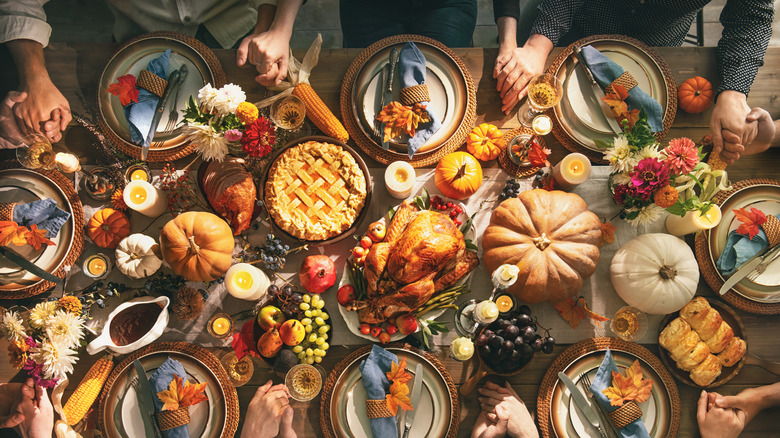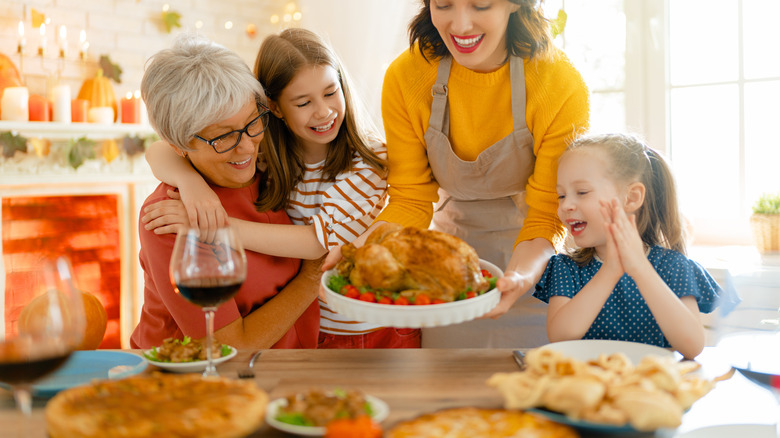How To Avoid A Food Coma On Thanksgiving
As you sit down for dinner every Thanksgiving, you probably expect turkey, stuffing, pie, and last but not least, a debilitating food coma once you're done eating. Feeling tired after eating is common, and not just on Thanksgiving. Research shows that people often tend to become tired shortly after eating (via Sleep), and that this phenomenon is also seen in other species such as flies (via eLife) and worms (via Worm).
So, chances are that fatigue after eating isn't something that is especially new to you, but the intensity on Thanksgiving can be particularly intense. This makes sense because a single Thanksgiving dish averages around 3,000 calories and 159 grams of fat, says the Calorie Control Council, and as CBS News points out, Thanksgiving dinners often have more salt than experts would recommend for an entire day. All of this promotes post-meal sleepiness, according to research on flies (via eLife) and humans (via Molecular Metabolism).
Follow these steps to avoid the dreaded food coma
Traditional Thanksgiving meals will almost certainly leave you feeling drowsy, but the good news is that this feeling is not inevitable if you make a few adjustments to your Thanksgiving routine. Registered dietitian Bethany Thayer recommends cooking your meal from scratch so that you can control what is going into your food and avoid a sodium overload (via CBS News). Nutritionist Amy Keating suggests preparing sensible portion sizes that won't exceed your daily limit of calories (per Consumer Reports), and registered dietitian nutritionist Kristi King advises filling half of your plate with fruits and vegetables, which will help satisfy your hunger without making you feel sleepy (per Eat This).
You may feel compelled to not eat much during Thanksgiving day so that you can save your calories for dinner, but according to experts, this is counterproductive and will probably lead you to overeat. Instead, nutrition consultant Monica Auslander Moreno tells Eat This that people should consider eating a nutrient-rich breakfast and lunch and possibly even a pre-meal snack. You'll want to drink plenty of water before and during dinner to stay energized, and to eat your dinner mindfully and slowly, and avoid going for a second or third plate. Only choose one or two desserts and freeze the rest for leftovers. After dinner, Auslander Moreno suggests going for a walk with your loved ones, as getting off your feet will bring you some energy.


